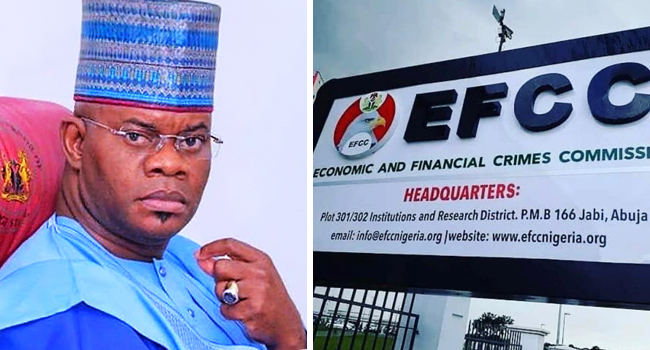FG Saves N200bn Under The Whistleblower Initiative


The Federal Government has revealed that N200 billion has been saved through the elimination of ghost workers by the by the action of the Presidential Initiative on Continuous Audit (PICA), the monitoring organ of the whistleblower policy.
President Muhammadu Buhari said this while been represented by Vice President Yemi Osinbajo, announced this in a keynote address at the Open Government Partnership (OGP) Week 2018 in Abuja.
In his address titled “The Impact of Open Government Partnership to Nigeria’s Anti-Corruption Efforts,’’ Buhari stated that government had recovered about N7.8 billion, $378million and £27,800 through the Whistleblower’s Policy launched in December 2016.
He explained that PICA was established to clean up the payroll and pension system across all the ministries, departments and agencies.
According to him, the administration has included recovered assets in the country’s annual budget since 2017 and invested them in the development of infrastructure and in the Social Investment Programme (SIP).
The president added that an executive bill had been sent to the National Assembly for the purpose of enacting a more comprehensive legislation on proceeds of crime.
Buhari underscored the administration’s utilisation of technology in a way that it had not been done before to underpin his commitment to transparent and accountable governance.
“Nigeria’s experience has shown that technology and innovation tools, as well as social media platforms, are changing the ways in which citizens engage with government, and empowering citizens and non-state actors to take a more active role in holding the government to account,” he said.
He stated that the administration gave bite to the Treasury Single Account (TSA) which it inherited from the past administration as a paperwork only and through the creation of the Presidential Advisory Committee against Corruption (PACAC), among others.
The president explained that Nigeria committed to joining the OGP at the London Anti-Corruption Summit in May 2016 and became the 70th member of the organisation in July 2017.
The partnership is “an international multi-stakeholder initiative focused on improving transparency, accountability, citizen participation and responsiveness to citizens through technology and innovation”.
He stated that through the OGP Nigeria developed its first National Action Plan (NAP) of 14 commitments to focus on Fiscal Transparency, Anti-Corruption, Access to Information and Citizens’ Engagement.
“One of the remarkable things about the OGP is that it was designed to function as a partnership between governments and the private sector.
“Without this coalition-building, I doubt that much progress would be achievable.
“Regardless of whether the goal is improving infrastructure or fighting corruption, it is clear, and it has always been, that governments cannot do it alone,” he added.
The Attorney General and Minister of Justice, Mr Abubakar Malami, who is the Co-chair, OGP National Steering Committee, had earlier said five states in Nigeria had keyed into the OGP programme.
Malami listed the states as Kaduna, Kano, Anambra, Ebonyi and Niger.










